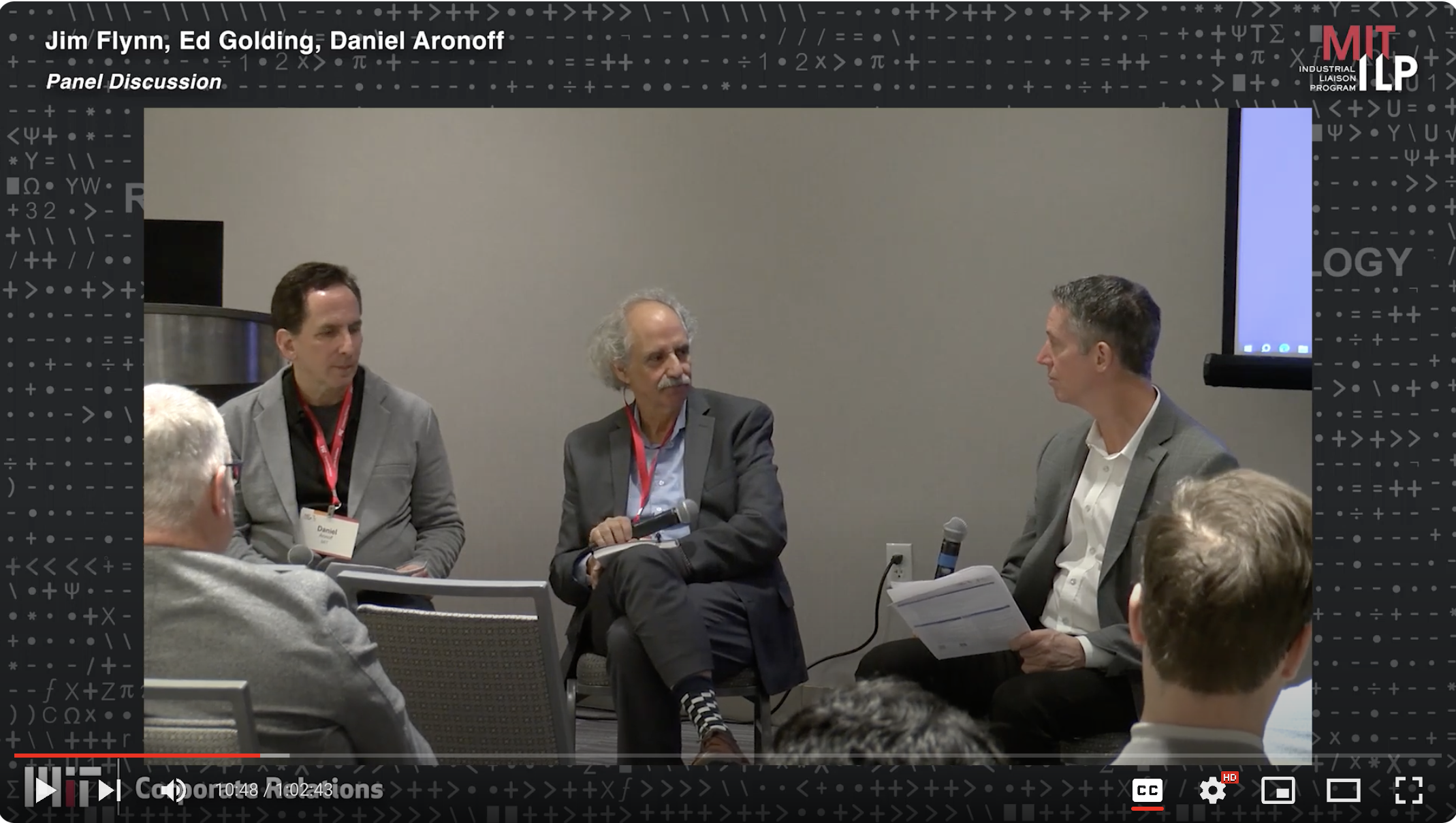In November, MIT Digital Currency Initiative research scientist Daniel Aronoff participated in a panel discussion along with Ed Golding, Executive Director of the MIT Golub Center for Finance, on fintech and the digitization of finance at the MIT Research and Development Conference. The lively conversation touched on many topics relevant to DCI’s work, including safeguarding privacy in central bank digital currencies, decentralizing repo markets through smart contracts, and the future of cash.
Read MoreWe’re excited to share that AJ Towns is joining the Digital Currency Initiative to lead our Bitcoin Software and Security Effort (please find his announcement below). This four-year research and development program is designed to continue to harden the Bitcoin network and steward the industry’s commitment to funding open source software. The effort will include contributing to Bitcoin Core development as well as longer-term research, such as investigations into the stability of rewards and software to provide strong robustness and correctness guarantees. It will also include attracting talent in network and operating system security, compilers, programming languages, testing, and more to join the effort.
Read MoreView the DCI presentation and fireside chats from the 2021 MIT BItcoin Expo here
Read MoreDigital Currency Initiative at the MIT Media Lab Launches New Bitcoin Software and Security Effort with Industry Leaders
Thanks to millions of open source developer hours over the past 12 years, and a burgeoning and supportive ecosystem, Bitcoin is no longer an obscure cryptographic toy. It is now an open-source financial network that secures on the order of $1T of value.
As the use of Bitcoin grows, and as it becomes more deeply embedded into our societies, the security of the network must grow and strengthen alongside it. Yet, as a common good, there is no one single Bitcoin protector or guardian to take on this formidable task. By design, there is no central command. And while this presents significant logistical challenges, it is also the distinguishing feature perhaps most unique to Bitcoin: no central point of failure. Bitcoin's nearly-uninterrupted operation over the years is a testament to the power of decentralization…
DCI’s Tadge took part in an episode of “What Bitcoin Did" with host, Peter McCormick, discussing the fundamental and technical differences between Bitcoin and Ethereum, scalability and use cases.
Read MoreQuick Take
Bitcoin’s third-ever block halving is set to take place next month
But from a network perspective, what exactly happens?
The cryptocurrency world is abuzz with speculation about the potential impact of next month's bitcoin halving, when for the third time in the network's history, the reward for mining a block will be divided by two.
Much of the discussion revolves around what will happen to the price. But we'll have to wait until after the thing actually happens - around May 12 - to know that. In the meantime, let's explore a different question: What exactly changes under the hood during the halving?
Read MoreOur MIT motto, mens et manus, is a call-to-action to be more than mere technologists and to learn (by doing!) how to be thoughtful makers of a better world. The Digital Currency Initiative (DCI) Working Group Program creates a sandbox for interdisciplinary teams of students to hack on pressing topics in cryptocurrency and blockchain technology. Students from the Blockchain Lab will collaborate with instructors, companies and DCI to investigate uses of blockchain technology and how to integrate it into viable business models.
Read the full post on Medium
Read MoreDCI Bitcoin Core developer Cory Fields shares his experience disclosing a critical Bitcoin Cash vulnerability.
Read MoreSolar-powered Bitcoin mining rigs that transform excess energy capacity from renewable energy into money.
Read More


